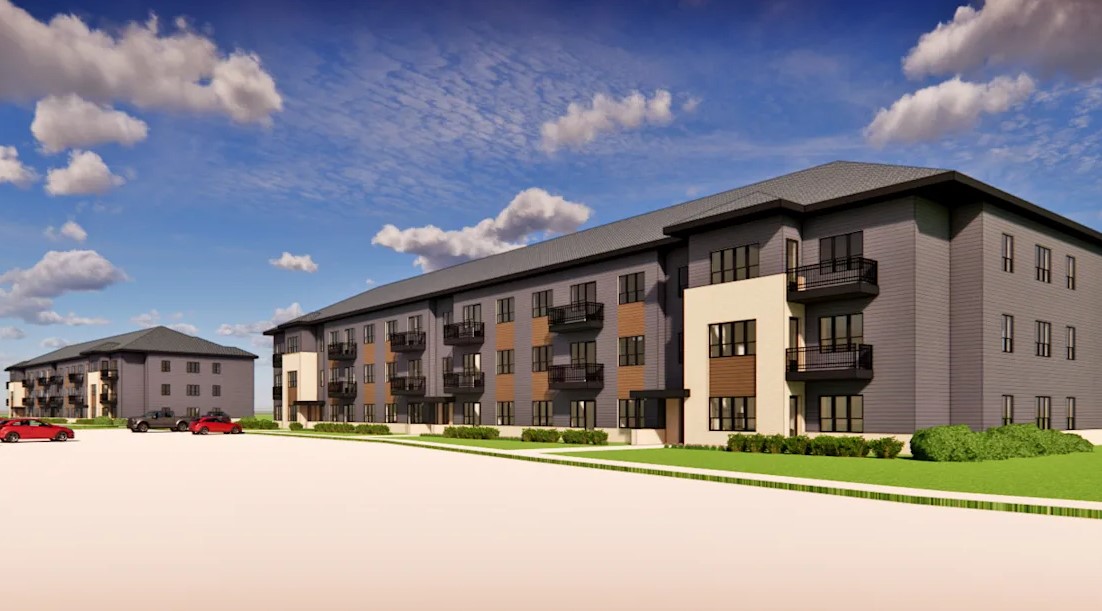As a property management company (PMC) it’s essential to ensure you’re making the most of your localized marketing efforts. PMCs face the challenge of marketing for the corporate entity while also finding ways to improve marketing efforts across each property.
Here are a few basics on how local properties can best apply corporate strategies to their localized marketing.
Evaluate your marketing tech stack
One of the first things PMCs should do is assess your current marketing technology (mar tech) stack. Many property management marketers use the same mar tech year after year without considering newer tools that might be a better fit.
For instance, is your PMC using multiple tools to manage different aspects of your marketing—one for social media, another for reviews? Are you able to scale your marketing across properties? What about personalization?
Some platforms allow you to manage multiple components of a marketing strategy all within a single tool. Consolidation reduces the time your local teams spend learning numerous platforms and can often saves money.
While you may be hesitant to learn new tools or platforms, the benefits can outweigh the time and effort it takes to make the switch.
Personalization is key
If your properties don’t provide a personalized experience for each prospective resident, you’ll miss potential leases. We all appreciate personalization. If a company makes a point of personalizing to the individual, it is noticed.
Here are just a few ways to personalize your localized marketing strategy.
Respond to reviews: Responding to reviews is one of the most effective ways to personalize the customer journey. Whether a resident is leaving a review when moving out of a local property or someone is sharing their experience after an apartment tour, response makes the reviewer heard.
While responding to all reviews is the goal, it’s good to clear the negative reviews first. Respond to all in a personalized and timely manner.
Remember the power of active listening and address the reviewer by name and acknowledge the content in the review.
Seventy percent of prospects decide to visit a property with a higher online reputation according to a study by J Turner Research. Responding to reviews will improve your properties’ brand reputation by showing gratitude for positive reviews and by dealing with those issues requiring resolution or context.
Share local social topics: It’s been found that localized content performs 12x better than content that is too general. Each property should have its own social media presence and share content relevant to its location and target audience.
If local property managers are struggling with content, consider these topics: special promotions or discounts happening at your property around leasing or ancillary services; positive customer reviews from residents; pictures of live or virtual events occurring at your property; event example—say you’ve hosted a wine-tasting event—share those images on your local social media accounts; current events happening in local proximity; local report—is there a snowstorm headed your way? Did the local sports team win a big game?
These are things you can incorporate into your local social content; community programs that show your property is giving back to the community; conduct an annual food drive for your local community or collect coats for kids during winter, highlight these events on your local social channels.
While managing local social content is no easy task, it’s well worth it.
Optimize based on feedback
While review response and local social are great ways to personalize resident experience at a property, it’s likewise essential to make optimizations based on feedback.
If several current residents have expressed frustration over the response time of your maintenance staff, this is something you need to address. Similarly, if prospects have difficulty reaching your leasing office, consider ways to improve availability.
Residents want to know that they are heard by their onsite management team. Making changes based on direct feedback is an excellent way of establishing good communication channels with residents and proving value.
Unifying a property’s messaging means letting residents know you’ve made updates via email and by responding to reviews that note the same issue.
Leverage chatbots when feasible
Chatbots are a great opportunity for expansion and efficiency for PMCs. Already leveraging chatbots? Are you using them to their fullest potential?
Chatbots are a simple way to automate responses to current and prospective residents about local properties, facilitate their leaving feedback about their experience, and to provide answers to frequently asked questions without their waiting for a response or for staff to be available to pick up the phone.
Chatbots save your property managers time that they would have spent communicating with residents. With some of their time freed up, your property management marketers are free to focus on other essential marketing.
Chatbots provide insight into areas of opportunity at your property; collect new leads through calls-to-action and surveys; retarget potential residents discovered through the same automated system.
While chatbots are a must-have in 2023, it’s important that PMCs find a solution that properties can use across locations. Similarly, finding a chatbot solution that allows for personalization is critical.
One example is a product by SOCi, a social media management company. SmartBot, is a Facebook, Google and SMS Messaging chatbot that delivers localized, proactive responses to questions. It can also drive calls-to-action, including phone calls, website clicks and appointment setting.
Market to WFH audiences
The pandemic reshaped the way many Americans work. As of 2022, roughly six in ten U.S. workers said they could do their job from home. Additional statistics on remote workers reveal that more than 4.7 million U.S. workers work remotely at least three days a week.
This data indicates that many prospective residents will consider the ability to work from home when looking at apartments. Marketing to this new demographic is a key to garnering marketshare.
Do your properties have a business center where those living in smaller apartments can go to work? Can residents choose from multiple internet providers? Are local trails and restaurants nearby that those working from home can walk to during a lunch break?
Properties should address these value propositions in their marketing. If a work-from-home (WFH) prospect is choosing between two similar properties and one clearly communicates its benefits to remote workers, you’ve won the resident by presenting the value model most conducive to their lifestyle.
Optimize the resident journey
Focus on consistently improving the resident journey.What is a resident’s experience from the moment they discover your property online to when they sign a lease? After they sign a lease, are they forgotten about, or do you continue to nurture them, so they re-sign?
While optimizing the resident journey could be a complete subject matter in itself, there are other practices to keep in mind.
When a resident finds your property in local search results they should be able to easily gather relevant and updated information about the property.
Make it simple for prospective residents to book an apartment tour and for current residents to make maintenance requests.
Provide an option for online virtual apartment tours. Forty-one percent of millennials now prefer high-quality 3D virtual tours of rental properties.
Make the move-in process seamless. From signing a lease to getting the keys to move-in day logistics, management should communicate regularly.
If those searching for their next home and current residents are engaged, they’ll remember when it comes time to sign or resign a lease.
Crush your 2023 marketing goals
While your property managers are already busy keeping renters happy and finding new renters, localized marketing shouldn’t be on the back burner. Now that you know which marketing tactics are essential, you’re almost there. It’s time to execute.
With numerous property locations, PMCs often hesitate to implement a fully localized marketing plan. Analyzing and updating your mar tech stack is a crucial first step. Finding an expert partner with who knows the full lifecycle of implementation will bring it home.
Source SOCi













